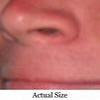This problem was the subject of my final paper for my PHI 030 class. When I wrote my essay, I coincidentally touched upon a number of topics I would revisit in later courses (apparently I hadn't come up with anything new). So here's my resolution of the problem.
Adams and Leverrier were, indeed, scientists. The illusion here is that the orbit of Uranus directly contradicted Newton's theory of gravity. Instead, you could say that the orbit of Uranus was consistent with Newton's theory, but inconsistent with the hypothesis "Our solar system has seven planets." Between these two theories, Newton's theory is stronger, because it applies to every object everywhere. The seven-planet theory has a much more limited scope. But these aren't the only two hypotheses that were tested. They tested the theory of mathematics in their calculations, the theory of a functioning telescope, the theory of their eyes being capable of detecting light reflected off an undiscovered planet, etc. The idea that you can't test a single theory actually turns out to be a big problem for philosophers of science.
More importantly, at no point in their work did they violate the criterion of falsifiability. Their new hypothesis "Our solar system has eight planets" was still falsifiable. If Neptune hadn't been exactly where they said it was, their hypothesis would be thrown out.
But suppose that was the case, that there was no eighth planet. Would that then disprove Newton's theory? The answer is... yes! In fact, the exact same scenario led indirectly to Einstein disproving Newton's theory! Leverrier, in addition to his observations of the orbit of Uranus, also observed inconsistencies in the orbit of Mercury. He hypothesized that there was a planet closer to the sun, which he dubbed "Vulcan" (Trekkies, don't get ahead of yourselves). Astronomers searched for decades to find Vulcan, but no one ever did. In 1915, Einstein introduced his theory of relativity, which explained the orbit of Mercury in addition to explaining everything covered by Newton. Thus, Newton's theory of gravity was replaced by Einstein's theory of relativity.
To be fair, it wasn't just Mercury's orbit which led to the downfall of Newton's theory. Among other things, Newton's theory failed to accurately predict the gravitational deflection of light. The process of abandoning a fundamental theory such as Newton's is covered in a specific realm of PoS: the Philosophy of Scientific Revolutions. But that's another topic for another time.
On a side note, to respond to what Travis said, "accomplishments shouldn't be confused with intentions," you're absolutely right (although I don't think it applies here). That school of thought was maintained by the logical positivists in the early 20th century, who argued that "discovery" is independent of science. The best example of this is the discovery of the structure of benzene. The empiric formula C6H6 was known for centuries, but no one could explain the structure. In the late 19th century, Friedrich Kekule discovered the ring shape when he had a dream about a snake eating it's own tail. Regardless of how he discovered it, his claim was still falsifiable and stood up to every test, and thus the hypothesis is considered scientific.
05 May 2008
Subscribe to:
Post Comments (Atom)

No comments:
Post a Comment